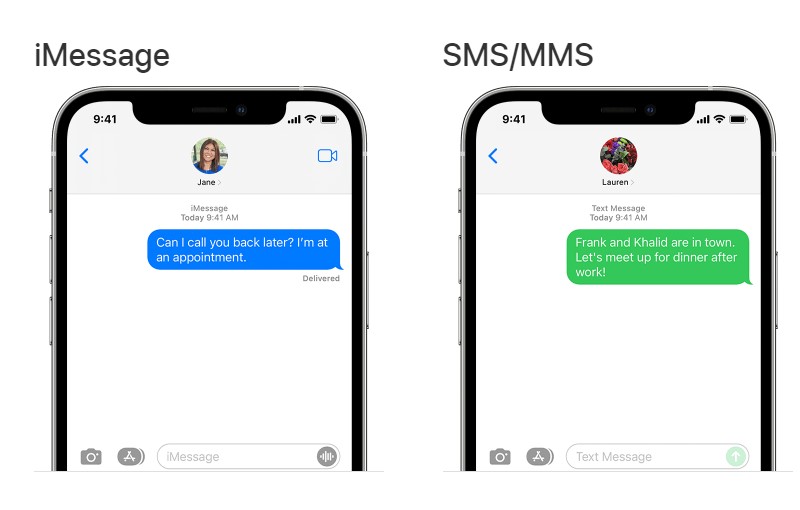Apple’s RCS Support: A Game-Changer for iPhone-Android Messaging
Introduction: Meet the Author
Hello, my name is Fred and I am a mobile tech geek. I have been following the latest trends and developments in the mobile industry for over a decade. I love to explore new features and functionalities of different devices and platforms. I also enjoy sharing my insights and opinions with other enthusiasts and readers.
In this article, I will talk about one of the most exciting and anticipated announcements from Apple: the support for RCS, a messaging standard that will improve the communication between iPhone and Android users. I will explain what RCS is, why it matters, how it will enhance the cross-platform messaging experience, what are the benefits of RCS for mobile users and businesses, and how to enable RCS on your iPhone or Android device.
If you are curious about how Apple’s RCS support will impact the mobile industry and what it means for you, then read on and find out.
What is RCS and Why Does It Matter?
RCS stands for Rich Communication Services, a messaging standard that allows for more features and functionality than SMS or MMS. RCS was developed by the GSM Association (GSMA), a trade body that represents the interests of mobile operators worldwide. RCS aims to provide a universal and interoperable messaging solution that works across different devices, networks, and regions.
Some of the features and functionalities that RCS offers include:
- Read receipts: You can see when your message has been delivered and read by the recipient.
- Typing indicators: You can see when the other person is typing a reply.
- Group chats: You can create and manage group conversations with multiple participants.
- High-quality media sharing: You can send and receive photos, videos, audio, stickers, GIFs, and other media files in high resolution and quality.
- Location sharing: You can share your real-time location with your contacts.
- Chatbots: You can interact with automated services and agents that provide information, assistance, or entertainment.
- Rich cards: You can view and access interactive content such as coupons, tickets, reservations, and more within the messaging app.
RCS matters because it offers a better and richer messaging experience than SMS or MMS, which are limited and outdated. SMS (Short Message Service) only supports text messages of up to 160 characters, while MMS (Multimedia Messaging Service) supports media files of up to 300 KB. SMS and MMS also lack features such as read receipts, typing indicators, group chats, and more.
RCS also matters because it enables better interoperability between different devices and platforms. Currently, iPhone users can enjoy the features and functionalities of iMessage, Apple’s proprietary messaging service, but only when communicating with other iPhone users. Android users can use various messaging apps, such as Google Messages, WhatsApp, Telegram, and more, but they have to rely on SMS or MMS when communicating with iPhone users. This creates a fragmented and inconsistent messaging experience for both iPhone and Android users.
With RCS, iPhone and Android users will be able to enjoy the same features and functionalities across platforms, as long as they use a compatible messaging app that supports RCS. This will create a more seamless and unified messaging experience for both iPhone and Android users.
How Apple’s RCS Support Will Enhance iPhone-Android Messaging
Apple announced that it will add support for RCS Universal Profile later next year, enabling better interoperability with Android devices. RCS Universal Profile is a set of specifications and guidelines that define the common features and functionalities of RCS, ensuring compatibility and consistency across different devices, networks, and regions.
Apple’s RCS support will enhance the iPhone-Android messaging experience in several ways:
- It will allow iPhone users to send and receive RCS messages to and from Android users, as long as they use a compatible messaging app that supports RCS. This means that iPhone users will be able to enjoy the features and functionalities of RCS, such as read receipts, typing indicators, group chats, and high-quality media sharing, when communicating with Android users.
- It will allow Android users to send and receive RCS messages to and from iPhone users, as long as they use a compatible messaging app that supports RCS. This means that Android users will no longer have to rely on SMS or MMS, which are limited and outdated, when communicating with iPhone users.
- It will create a more seamless and unified messaging experience for both iPhone and Android users, as they will be able to use the same messaging app and enjoy the same features and functionalities across platforms.
Apple’s RCS support will not replace iMessage, which will still be the default messaging service for iPhone users. However, it will offer an alternative and improved messaging option for iPhone users who want to communicate with Android users. It will also offer an option for iPhone users who want to switch to Android devices, as they will be able to keep their messaging history and contacts.
What Are the Benefits of RCS for Mobile Users and Businesses?
RCS will not only improve the messaging experience for mobile users, but also create new opportunities and benefits for businesses. Some of the benefits of RCS for mobile users and businesses include:
- Improved user experience: RCS will provide a more engaging and interactive messaging experience for mobile users, as they will be able to access more features and functionalities than SMS or MMS. RCS will also provide a more consistent and reliable messaging experience, as it will work across different devices, networks, and regions.
- Enhanced security and privacy: RCS will provide a more secure and private messaging experience for mobile users, as it will use end-to-end encryption, authentication, and verification to protect the messages and the users. RCS will also allow users to control their privacy settings, such as blocking unwanted messages or opting out of certain features.
- New opportunities for businesses: RCS will provide a new channel for businesses to communicate and engage with their customers, as they will be able to use chatbots, rich cards, and other interactive content to provide information, assistance, or entertainment. RCS will also allow businesses to measure and analyze the effectiveness and performance of their messaging campaigns, as they will be able to track and collect data such as delivery, read, and click rates.

How to Enable RCS on Your iPhone or Android Device
To enable RCS on your iPhone or Android device, you will need to update your device to the latest software version and use a compatible messaging app that supports RCS. Here are the steps to enable RCS on your iPhone or Android device:
- For iPhone users: You will need to update your device to iOS 15.2 or later, which will be released later next year. You will also need to download and install Google Messages, which is a messaging app that supports RCS, from the App Store. You will then need to open Google Messages, sign in with your Google account, and follow the instructions to set up RCS. You will also need to make Google Messages your default messaging app, which you can do by going to Settings > Messages > Default Messaging App and selecting Google Messages.
- For Android users: You will need to update your device to Android 12 or later, which is already available for some devices. You will also need to download and install Google Messages, which is a messaging app that supports RCS, from the Google Play Store. You will then need to open Google Messages, sign in with your Google account, and follow the instructions to set up RCS. You will also need to make Google Messages your default messaging app, which you can do by going to Settings > Apps > Default Apps and selecting Google Messages.
Once you have enabled RCS on your iPhone or Android device, you will be able to enjoy the features and functionalities of RCS, such as read receipts, typing indicators, group chats, and high-quality media sharing, when communicating with other RCS users. You will also be able to communicate with non-RCS users, but you will only be able to use SMS or MMS, which are limited and outdated.
Conclusion: The Future of Cross-Platform Communication
RCS is a messaging standard that will improve the communication between iPhone and Android users, as it will provide more features and functionality than SMS or MMS. RCS will also enable better interoperability between different devices and platforms, creating a more seamless and unified messaging experience for both iPhone and Android users.
Apple’s RCS support will enhance the iPhone-Android messaging experience, as it will allow iPhone users to send and receive RCS messages to and from Android users, and vice versa. Apple’s RCS support will also offer an alternative and improved messaging option for iPhone users who want to communicate with Android users, or who want to switch to Android devices.
RCS will not only improve the messaging experience for mobile users, but also create new opportunities and benefits for businesses, as they will be able to use chatbots, rich cards, and other interactive content to communicate and engage with their customers.
RCS is the future of cross-platform communication, and it is coming soon to your iPhone or Android device. Are you ready for it?




